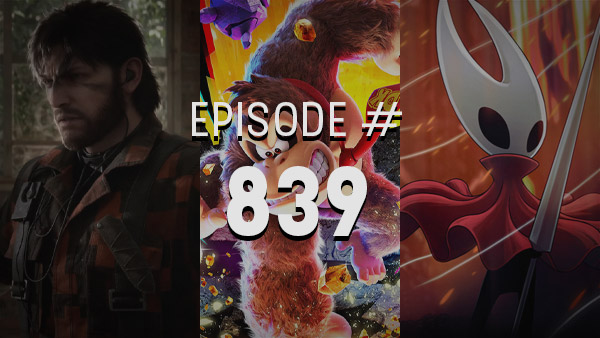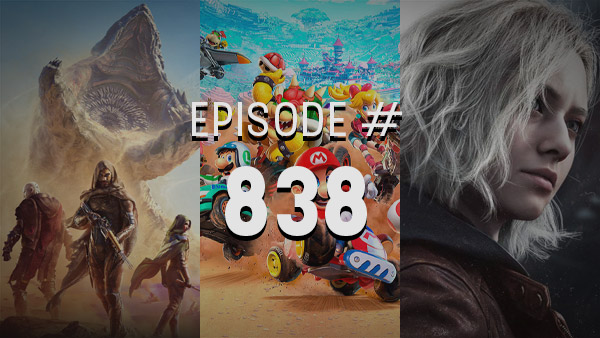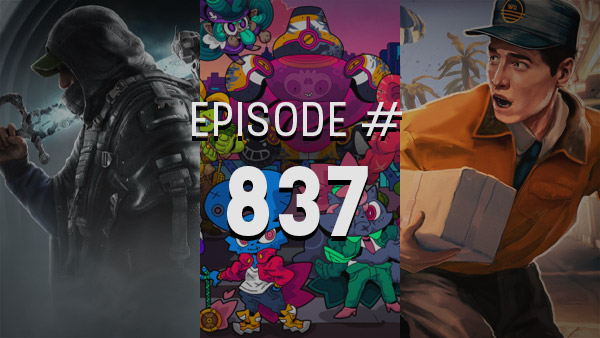Your login information returned multiple users. Please select the user you would like to log in as and re-type in your password.
 On the Idol website NewSchoolKaidan, we recently interviewed Kotaku writer and Idol fan Brian Ashcraft. He was kind enough make some time to chat with us about his experiences with idols and pop music. We talked about things like Pop stigmas, the workings of the Japanese entertainment industry, AKB48, scandals, the Korean pop invasion so if you're interested here's a copy that interview. Or you can read it here.
On the Idol website NewSchoolKaidan, we recently interviewed Kotaku writer and Idol fan Brian Ashcraft. He was kind enough make some time to chat with us about his experiences with idols and pop music. We talked about things like Pop stigmas, the workings of the Japanese entertainment industry, AKB48, scandals, the Korean pop invasion so if you're interested here's a copy that interview. Or you can read it here.
NSK: Hello boys and girls this is David and Dae is from NSK, and we have a special guest for an interview: Mr. Brian Ashcraft, writer for Kotaku among other things, and you've also written two books Arcade Mania and Japanese Schoolgirl Confidential, is that correct?
Ashcraft: That is correct.
NSK: One of which we've read and talked about on the show, Schoolgirl Confidential, which we've really enjoyed, and that's one of the reasons why we've decided to take some of your time and ask you some questions; Thanks again for taking time out of your day.
Ashcraft: Oh, no problem.
NSK: I know it's early in the day, and you got stuff to do, so we really appreciate it. So first off, some questions: How is living in Japan? I know you you were originally from Texas, so it must have been a pretty big difference.
Ashcraft: Yea, well I've been living here for a decade now so now it's all very, very normal.
NSK: You had just mentioned that you had a soccer game you had to go to, and that sounded very American.
Ashcraft: (laughs) Well, just yesterday we did a barbecue, and I'm picking my kid up from soccer practice, so obviously there are things that are different, but it's not like people wear hamburgers on their feet and eat shoes or something, so it's more or less the same.
NSK: One thing I was always curious about after reading your book was, how big of an idol fan do you consider yourself to be?
Ashcraft: I mean, I really like music; and all kinds of music--- from death metal, country music, to British pop and whatever, and I, obviously, live in Japan so I consume a lot of Japanese music, so I enjoy that as well. I generally like pretty much everything, whether it be music, comic books, video games, or movies, so I don't go in with any sort of prejudice where I'm thinking, "This is low art", or, "This is high art", or, "This is good stuff", and, "This is just cheese", know what I mean?
NSK: Yeah, that's something we see that a lot of people have arguments about, because people who aren't idol fans say things like, "Oh, that's not real music", or "they (idols) don't write their own lyrics".
Ashcraft: Yeah, and I think they're missing the point. I always try to, in anything that I approach, write about or cover, I always try to look at it with a degree of seriousness. I don't want to say that it's so serious that it becomes boring or I can't find the fun. But just give everything a certain degree of respect because people are working hard, and they're creating something. Not everyone may like it or think it's worth their time, but it's something I always try to pay respect to.
So somethinglike pop music, or specifically idol music, the thing that I really like about it is… well, if we're gonna talk about the biggest pop band now, AKB48, the thing that I really respond to and respect about it is the creative force behind it. I really, really have a tremendous amount of respect for Yasushi Akimoto-san, because here's a guy who, during the 80's, didn't necessarily invent Onyanko Club, but he was their main producer and writing all their songs.
He wrote some really great pop songs, and he's taken that vision and applied it to other artists as well, and he took what made Onyanko Club so great, and magnified by ten-fold with AKB48, and the gazillion subgroups since then. You look at a lot of their songs, and they have great pop songs. But if you don't like pop songs, you probably won't like this. If you don't like pop music, I always think, "Well… you don't really like music," (laughs) you know, if you're going to turn your nose up like that.
NSK: Yeah, it's definitely a very unique formula that he's implemented with the elections and whatnot, and I never thought that Japan would see another million-seller again because it's just hard to sell CDs. I've had friends in Japan saying, "Oh, well there's just so many artists in Japan", when back then, it wasn't as saturated, there were the few really strong artists. Now there's just so many out there, it's just really hard to get everybody to focus on one group; Not to mention that digital sales and rips have been on the rise and physical copy sales were dwindling.
Ashcraft: In this day and age, to move that many physical copies of anything is just astounding, and they've been so clever about it. Even let's say you're not interested in idols, let's say you're a MBA (Master of Business Administration) and you're just interested in business stuff; You look at the way that they run their business and it's amazing and astounding.
NSK: It's just cool, the philosophies that AKB has with the handshaking events, and giving you high-fives on the way out after the local shows, and that sort of… personality and closeness, it's very different.
Ashcraft: Onyanko club had some elements of that, but they were were always separated by TV, and people would graduate, or become new members on the show and it would turn into crying-fests, and viewers would watch this on TV and would think, "Oh, that's so sad, this person's leaving the group". Then with Morning Musume, when they had their big debut, and had to sell a certain number of tickets to a live show on a reality TV special, that was kind of the next step. Akimoto took it one step further, by taking "sidewalk idols" and making them really famous, so it's really amazing.
NSK: Do you often times go to lives, or have time to go to concerts?
Ashcraft: I've been to live shows, but as you know, I have small kids so the free time that I have is given to them. I don't want to be a horrible parent (laughs). Also, I've moved sort of outside of Osaka city so if you've seen for example, "My Neighbor Totoro," that's kind of where I live now, a very rural environment. Going into the city, I try to do it on a regular basis, but it doesn't mean that I have an evening to dedicate to a live show. But lives are great, and I've been to the AKB's home-stage in Akihabara as well.
NSK: So do you have any favorite idols, or groups that you liked, or still follow?
Ashcraft: For me personally, there are a lot of idols that I like, and older groups that I liked. There's kind of this, "Wow, these groups are really great," or they just embodied the archetype. But I think for me, not so much in just a direct "idol" in a traditional sense, but there were a couple musicians I've always really liked. One is Hitomi, who was popular about ten years ago, and she was popular when I first came to Japan, so there's a a connection connection to her music.
I liked the turn-of-the-century stuff, and Morning Musume as well, because I was just coming here for the first time, and that was a great period, just a great period of Japanese pop. I remember that they had over a dozen members and I had this feeling of "Holy-cow that's nuts!" Now we have like a thousand 48 and spin-off members, and management needs a double-decker buses to carry them around. But I think for me personally, I was talking to someone about this yesterday, I really really like a lot of the Japanese music from the mid to late 90's which was very different from the idol music. That was one of the periods when I was in highschool and college, and starting to get really interested in Japan. You would hear music that took stuff that you have heard before, but give it a Shibuya spin and make it sound totally different. For example Brazilian lounge music.
NSK: So kind of like Flipper's Guitar and Ozawa Kenji, is what you're talking about?
Ashcraft: Yeah, I mean a lot of the "Shibuya Kei" stuff I really liked. Really, really interesting stuff.
NSK: Another question; It's been mentioned before that AKB is expanding. Already we've seen other groups in Japan, and is now spreading to Taiwan and performing in Singapore. How do you think these kind of idols groups appeal to the west?
Ashcraft: I don't think they can, because the Japanese entertainment industry is kind of like Hollywood between the 1930's and 60's, if that makes sense. Everything has to do with image, and things that are very controlled. Maybe in the west we've had that up through the 90's, where we had Britney Spears saying that she was a virgin, and etc, when you know, obviously, she was running amok. And in the 80's we had Tiffany, and Debbie Gibson who were these very "pure" kind of girls. But I think the watershed moment was with Britney Spears shaving her head (laughs) you know, going bananas.
I think that a lot of Americans and westerners might look at acts that purport themselves to be very pure, with very cynical eyes. Whereas even in Japan, I think a lot of people look at it cynically, but at the same time, when they see a picture of a girl (idol) with her boyfriend in a sticker picture, they're still like, "Oh, god!" and falling out of their chair. There is a certain leeway in Japan where people will still buy into it and buy into the fantasy and dream element of it but I think Americans and westerners are just, at this point, far too cynical.
I mean, our celebrities are just too… you know, just getting arrested, or doing crazy things like that, so small drama like somebody being caught smoking or having a boyfriend, which in the US twenty years ago may have been kind of a shocker--
NSK: Yeah, and I think at this point, we've become so desensitized that it doesn't even matter what celebrities do anymore.
Ashcraft: (laughs) Yeah, yeah, I remember fifteen years ago, something like, Martin Lawrence was wandering around Los Angeles in the highway with a gun, going berserk and having a total mental breakdown; I don't remember exactly, but at the time people were like, "Holy crap!" But these days with Charlie Sheen, if something like that happened, people would say, "Wow, this is great television" (laughs).
NSK: So speaking of scandals, you had reported on Kotaku about the Akimoto Sayaka scandal, where she had an older man stay over at her place, can you comment on how you feel about that situation or how it happened?
Ashcraft: I think it's just one of those things that got blown out of proportion. Let's say that something even did happen (between them), everyone's an adult here; She's on TV all the time and she's trying to branch out and appear on variety shows wearing normal clothes. She's obviously getting older, so there becomes a point where they need to make the leap from bubblegum stardom to either mainstream variety show stardom, or, if they have the chops, to move into television dramas or appearing in one of the few movies the country makes every year--- That leap is hard, and I think that a lot of the former Morning Musume stars are making the leap into variety shows and stuff, as the popularity of Morning Musume is kind of on the slide. A lot of the popular former members have found success in that, so I think that a lot of that stuff is blown out of proportion, I mean it sells weeklies and tabloids and stuff like that.
NSK: Ah I see. Well we had been asked about this in our podcast, and we've seen a lot of Korean artists come over to Japan and appealing to the Japanese, so how do you feel about it personally? Have you have noticed in Japan any kind of hesitation towards accepting these new artists?
Ashcraft: I mean, this kinda stuff started happening like ten years ago, when you had people like BoA coming over, and appearing on Japanese TV, speaking Japanese extremely well, and recording in Japanese. If you were to think about this twenty years ago, you just couldn't imagine that. Even now, you walk into a big electronics store and you don't really see Korean electronics, but more people are starting to use like, Samsung smart phones. In Korea twenty years ago, it would have been the same way as well. Maybe it was even against the law for them to import Japanese culture in large numbers, because they want to protect their own industries, and at the same time there's a history there between the two countries.
I think the turning point was really the 2002 Korean/Japan World Cup. If you notice things like the Olympics or the World Cup, it spurs on countries in a great way. Think about Korea before they did the Olympics, they had to modernize a lot of stuff just to hold the Olympics, like infrastructure, and that really changed the country in a good way, so with the World Cup, you had two countries successfully share the World Cup, and I think that was kind of a… well I don't want to call it a start of a beautiful friendship, but then you start having like Tsuyoshi from SMAP starting to learn Korean, and he learning songs and going to Korea. They liked him, and people in Japan who have Korean ancestry or are Korean-Japanese, they'd be like, "This is great, this is making me proud" to be Korean and have these roots. For a long time, people were kind of ashamed of that or hid it. Even now people still don't come out and say, "Hey! I have a other last name that I can't tell you!" (laughs), "I have to use a Japanese name so people don't discriminate me!"
I think little kids are the best barometer; If little kids are into it, that means their generation is going to have a profoundly different view of whatever that is. So little kids like KARA, they like Girls Generation, they like these groups a lot and they've really crossed over to the mainstream where people are really into it. I think that they like the way that these idols look; They look very different from Japanese idols. I mean, they often seem to have longer legs, you know? (laughs) And they can dance really well, sing really well, and a lot of them can appear on Japanese variety shows and speak Japanese extremely well, so I think people have a tremendous amount of respect for that. It's like, "Wow, they've come here, they've learned the language, they're a lot of fun, pretty, cute, etc", and the same thing's true for the male stars as well. A lot of women liked male stars starting with the whole Korean drama boom a few years back, but then it carries into pop music so you have boy bands come here and they're really, really popular.
I think BEAST/B2ST was on TV the other day and they can't speak Japanese at all, but give those guys a year and a half, and they'll be able to appear on Japanese television and make jokes and have fun. The respect for them will just increase and increase. It's great, and it makes me happy because you have two countries, who have a shared history that's often been pretty crappy, but there's a lot in common ground, so I think there's a good dialogue and I hope that kids in school start learning Korean because it can only be a plus.
NSK: That's a really great point. Do you see a possibility to doors opening towards China maybe?
Ashcraft: I think that China's a harder sell at the moment. I think that we really haven't gotten to the point where we have cultural ambassadors coming over here, like musical acts, and I think that pop culture like idols, comic books, video games, and actors and stuff like that. That's what really bridges the gap and China just doesn't quite have that yet. You know, they're still like, copying Gundam and stuff like that (laughs). When people in Japan see that they're just kind of like, "What?!"
NSK: Yeah, yeah, I can totally see what you're talking about.
Ashcraft: But I think give them ten years so they can sort that stuff out and they'll have their own whatever, they're own interesting movies--I mean movies, they have a long history with movies, I don't kind of want to slight that, but comic books, or even video games, or music, idols or whatever--- that'll happen. And you kind of see that kind of starting now where a Chinese models appears on the internet in Japan and people find them really pretty. So there's that kind of starting, that kind of foundation being laid, it'll just take a while.
NSK: Ok changing topics, regarding your Schoolgirl Confidential book, what kind of measures did you have to go through just to get a lot of this content that you put in, as far as contacting, setting up times, etc.
Ashcraft: Yeah, there was a lot of time spent setting stuff up, getting interviews, talking to people, and doing research, I mean it was very very labor intensive.
NSK: Did you ever have trouble with any of your contacts, like being hesitant to set up an interview, or really protective as far as giving out information?
Ashcraft: No, everyone I ended up talking to ended up being really, really generous with time. Like with AKB48, they were like, "How many girls do you need interviewed?" (laughs), so I said, "Oh I dunno, three would be fine".
NSK: Because I would have assumed that they would put restrictions like "You can't ask this, or ask that" so I was just wondering how moderated or protective, if at all, they would be.
Ashcraft: Oh no, not at all, anyone that I interviewed, it was just "Ask them whatever you want".
NSK: Wow, that's pretty awesome of them.
Ashcraft: Hey sorry guys, I have to run; I have to go pick my kid up from soccer, or he'll be stuck outside forever!
NSK: (laughs) Great, well thank you again for your time.
Ashcraft: Yeah, it was really great talking to you! Thanks so much!
Please visit New School Kaidan for more Idol content.
Brian Ashcraft writes for Kotaku.com and can be followed from his twitter @Brian_Ashcraft




Comments
13 years, 11 months ago
MmMmMmMm Video Games.
13 years, 11 months ago
Cool that you got to do this interview, I'm a kotaku frequenter so it was pretty interesting.
13 years, 11 months ago
That was an interesting interview. Thanks for sharing some stuff from NSK!
13 years, 11 months ago
The interview is a nice in depth view of entertainment in Asia. I've noticed too that the views on celebrities in the east and west are wildly different.
13 years, 11 months ago
This is FASCINATING. Excellent article
13 years, 11 months ago
I'm sorry, but what was the point of this?
13 years, 11 months ago
Nice interview
13 years, 11 months ago
Cool, thanks for posting this.
13 years, 11 months ago
You suck at video games, David.
13 years, 11 months ago
Wow, what a read1! Great post, David.
13 years, 10 months ago
Very insightful interview. I am still leery about the state of Korean pop (or Asian pop in general); its getting way too repetitious.
13 years, 10 months ago
Thank you, to you David, and the rest of NSK, for taking the time to interview Brian Ashcraft. I love to read about other cultures and this is actually a good read.
13 years, 10 months ago
Nice Interview David, I'm glad you were able to get this.
13 years, 10 months ago
It's always interesting to see another side of a writer you really only see one side of, in this case from Kotaku. Must've been a little intimidating talking to someone that works for such a huge site. Not to mention someone who obviously has a lot of knowledge about a subject you're interested in.
13 years, 10 months ago
Awesome. I really like how he didn't talk about just the music and talked about the business and personal aspect of it all. The complications and what-not. No credit taken from you David, you had to ask the right questions in the right way to get these answers. Fantastic job!
13 years, 10 months ago
Nice article David!
13 years, 10 months ago
Really enjoyed the article David, and I'm looking forward to further idol discussion (P.S: Love those idol broadcasts :D)